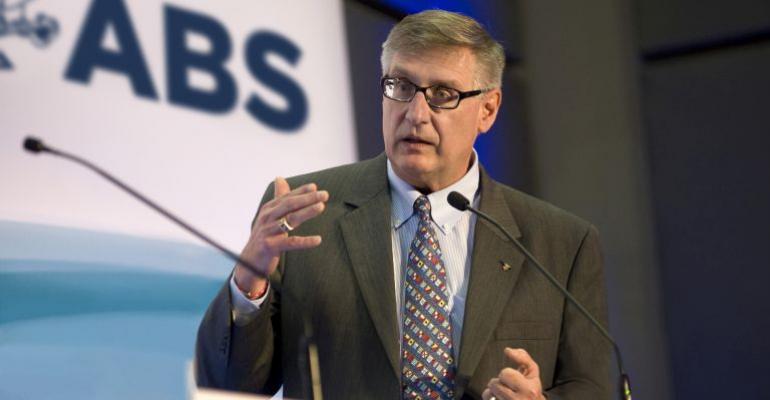ABS Chairman, President and CEO, Christopher J. Wiernicki, noted in a presentation how environmental regulations for shipping were creating new language for the industry – CO2 emissions per tonne mile. This concept combined with the new technologies, and the rate they are developed, will drive commercial decisions and the way the industry manages risk.
To meet the industry’s emission targets will require a combination of measures. “When you look at the possible answers to our challenges in meeting the IMO’s decarbonization targets for 2030 and 2050, there is no single solution. It's going to require a hybrid solution through a combination of alternate fuels, new technologies and gains in operational efficiencies,” Wiernicki said at the 11th Annual Capital Link Operational Excellence in Shipping Forum.
“The world will no longer be one-dimensional; rather, it will be multi-dimensional with different fuel pathways and different optimization models.”
With alternative fuels taking time to develop and bring to market at scale, a combination of technologies driven by availability will shape the industry’s decarbonisation.
“Technology, readiness, timelines and commercial relationships will drive our decarbonization journey. New designs will be viewed in terms of future-proofing, bridging and transition potential based on various fuel pathways,” he said.
For all the focus on technology success will only come in achieving the industry’s decarbonisation aims will only succeed with keeping safety and people the ultimate priority according to Wiernicki.
“No matter the pathways or the solutions, we must never forget the crew members who will continue to keep ships moving safely, and we must ensure they have the training and skills necessary to handle any technology or solution implemented,” he stated.
Copyright © 2024. All rights reserved. Seatrade, a trading name of Informa Markets (UK) Limited.
Add Seatrade Maritime News to your Google News feed.  |

